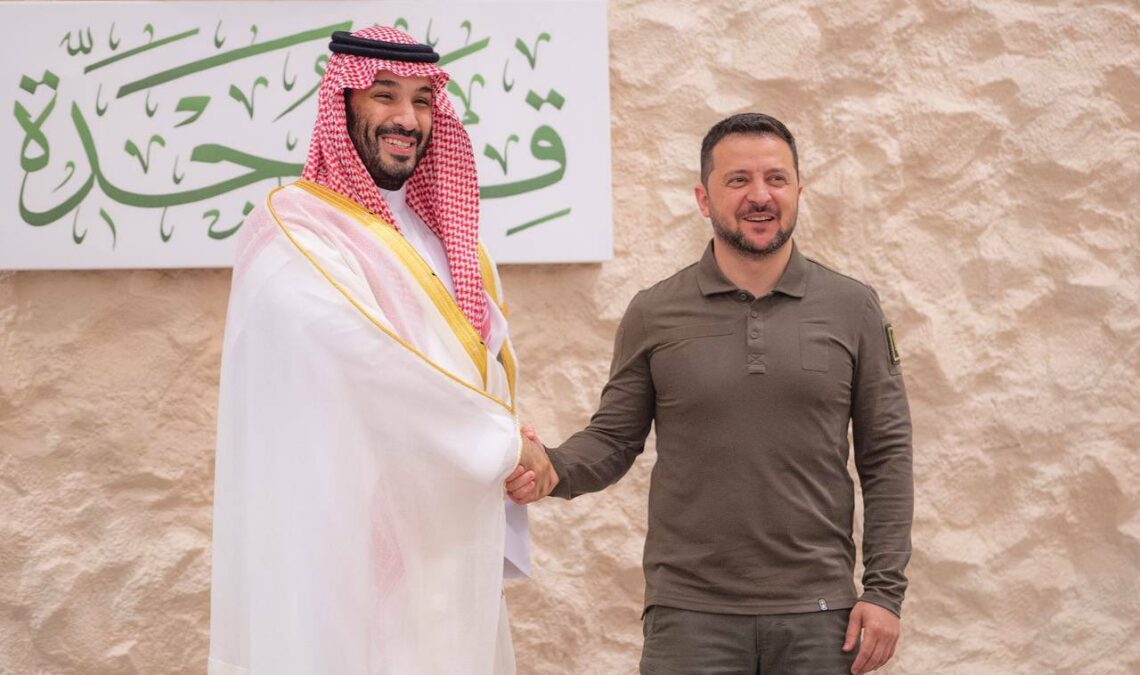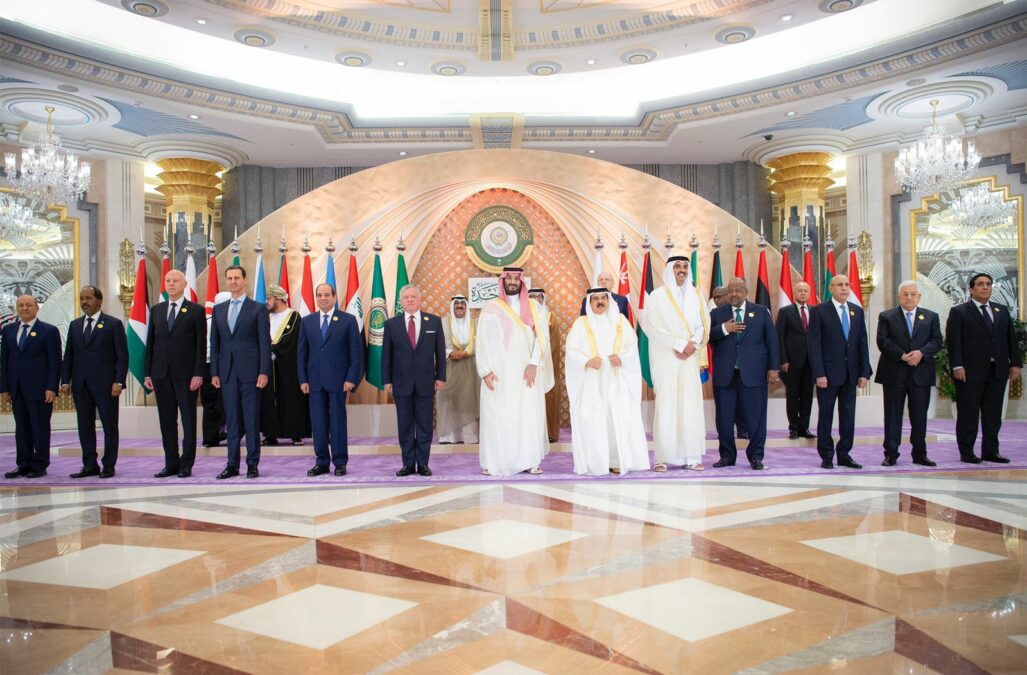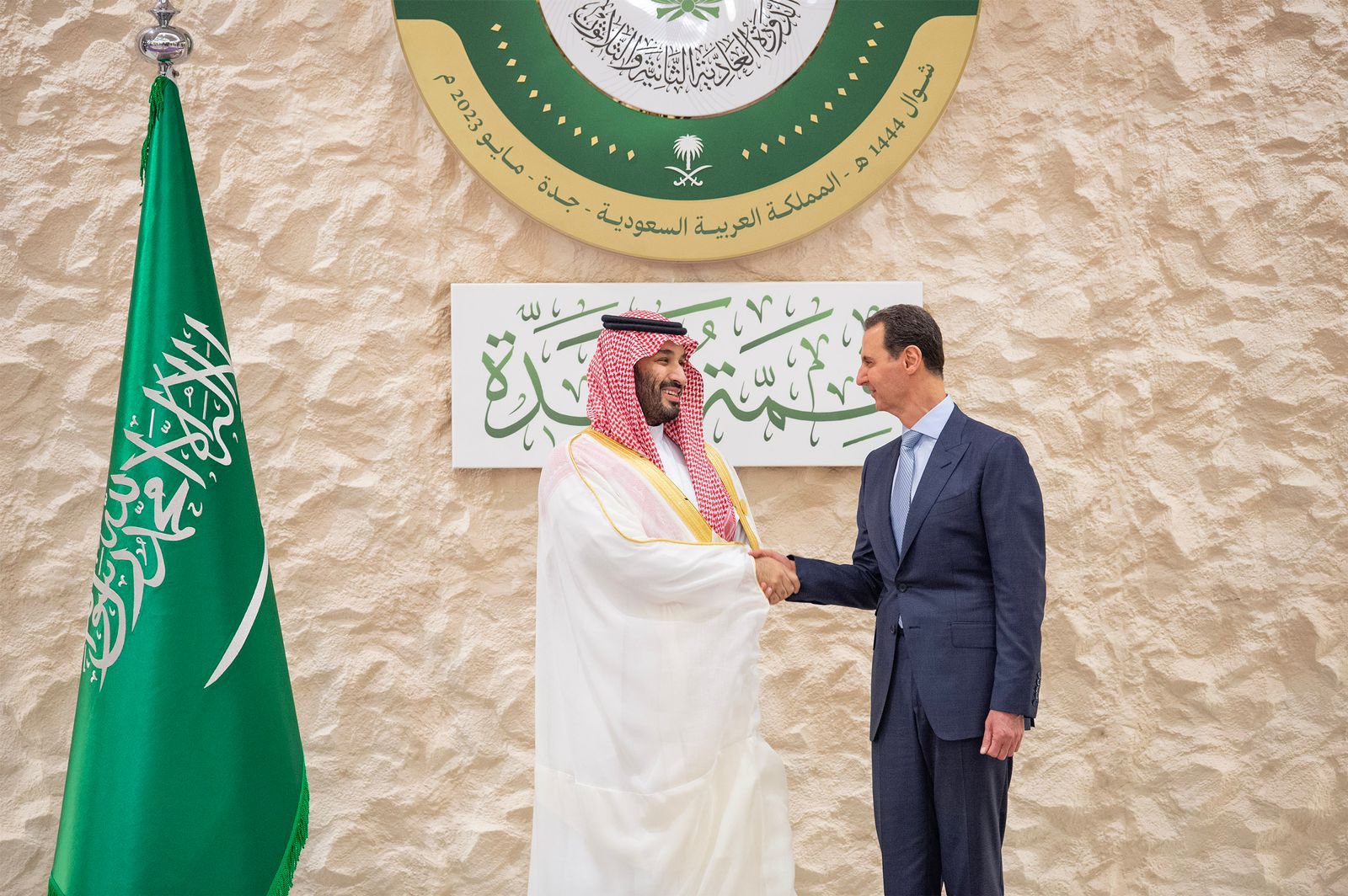Jeddah, Saudi Arabia – The Arab League Summit — which concluded in Jeddah, Saudi Arabia, on Friday — signaled a shift in regional dynamics as leaders unanimously pledged to strive for peace, development, and prosperity in the region.
The summit welcomed back Syrian President Bashar al-Assad, marking his first appearance since the suspension of Syria in 2011.
Saudi Crown Prince Mohammed bin Salman, the host of the Arab League Summit, emphasized the kingdom’s commitment to peace and cooperation in his speech.
Also Read Syria, Ukraine join as Arab League Summit kicks off
“We assure the neighboring countries, and friends in the West and the East, that we are moving forward seeking peace, goodness, cooperation, and construction,” he said, expressing optimism about the Arab world’s potential for a comprehensive renaissance in all fields.
Arab League Secretary General Ahmed Aboul Gheit voiced optimism about the summit’s potential impact on Sudan. He expressed hope that the Jeddah Summit will serve as a stepping stone for an Arab solution that would cease the bloodshed in Sudan, correct past mistakes, and uphold the supreme interest of the Sudanese state.
The gathering, attended by high-profile leaders from across the Arab world, saw discussions on a range of topics, including the Ukrainian crisis. Ukrainian President Volodymyr Zelenskyy, attending the summit, thanked Saudi Arabia for its efforts regarding the release of prisoners in Russia. He stated, “We came here for peace and justice.”

Arab leaders also highlighted the need for unity and coherent strategies to confront current challenges. Djibouti President Ismaïl Omar Guelleh expressed that unified Arab positions backed by effective strategies and mechanisms were crucial to tackle the issues at hand.
Egypt President Abdel Fattah El-Sisi said, “Preserving the national state and supporting its institutions are necessity for the future prosperity of nations and their capabilities.”
African Union Commission Chairperson Moussa Faki said, “The 32nd Arab Summit is taking place during a highly delicate period, regionally and globally.”
#UAE's Vice President Mansour bin Zayed at #ArabLeagueSummit: UAE supports all efforts to promote regional #stability and #peace.@HHMansoor @KSAmofaEN #SaudiArabia pic.twitter.com/WfdnWuwDxb
— TRENDS (@mena_trends) May 19, 2023
Djibouti President Ismaïl Omar Guelleh said, “ Unified and coherent Arab positions, supported by new, serious, and effective strategies and mechanisms, is the only way to confront the current challenges.
Saudi Crown Prince Mohammed bin Salman and Ukraine’s President Volodymyr Zelenskyy discussed bilateral relations and issues of common interest on the sidelines of the Arab League Summit in Jeddah.
Jordan’s King Abdullah II bin Al Hussein said, “The mechanism of joint Arab action needs constant development. The role played by the #ArabLeague is essential to maximizing cooperation, especially at economy level, among Arab countries, which helps counter the challenges posed by international crises.
Somali President Hassan Sheikh Mohamud said, “The Somali army was able to free more than 80 cities and has made remarkable progress in stopping assassinations.”
Lebanese Prime Minister Najib Mikati said, “We Trust Saudi Arabia’s Ability to Unite Arabs.”

Tunisian President Kais Saied said, “The Arab world should partner those seeking to reshape the world.”
Mauritania’s President Mohamed Ould Cheikh Ghazouani said, “There is a need for joint Arab efforts to boost Arab presence internationally.”
Palestinian President Mahmoud Abbas said, “ Israel disregards signed agreements and UN resolutions and adheres to Zionist colonial project.”
UAE’s Vice President Mansour bin Zayed said, “UAE supports all efforts to promote regional stability and peace.”
Assad is back
Arab leaders welcomed Syrian President Bashar al-Assad back into the fold Friday at a summit in Saudi Arabia that was also expected to confront conflicts across the Middle East and beyond.
A triumphant Assad called for a “new phase” in regional cooperation in his remarks to the summit, which also featured a surprise appearance by Ukrainian President Volodymyr Zelensky, a sign of host Saudi Arabia’s growing diplomatic clout.
It was the first time Assad had appeared at the Arab League since Syria was suspended in 2011 over the brutal crackdown on pro-democracy demonstrators that led to civil war.
“I hope that it marks the beginning of a new phase of Arab action for solidarity among us, for peace in our region, development and prosperity instead of war and destruction,” Assad told the gathering in Jeddah.
As leaders walked into the main hall, Assad exchanged greetings with Egyptian President Abdel Fattah al-Sisi, and before the opening ceremony he met Tunisia’s president and the vice president of the United Arab Emirates.
“I would like to loudly welcome Syria back to its seat among its brothers,” Algerian Prime Minister Ayman Benabderrahmane said in the opening speech of the summit.
“We are pleased today by the attendance of Syrian President Bashar al-Assad in this summit,” Saudi Crown Prince Mohammed bin Salman said in his remarks, adding he hoped the return would lead to “stability” in Syria.
Assad and Prince Mohammed met after the summit, and Assad “praised the efforts exerted by Saudi Arabia to achieve Arab rapprochement”, Syria’s official SANA news agency reported.
Promote reconciliation
The embrace of Assad was a marked departure for Saudi Arabia, which supported Syrian rebel groups during earlier stages of the war and accused Assad, a staunch Iran ally, of operating a “killing machine”.
An Arab League statement said the bloc agreed to address both issues as well as “terrorism”.
It stressed the “need to take practical and effective steps to gradually solve the crisis” in Syria, but details on what actions might be taken were not immediately available.
Back home in Syria, hundreds in the rebel-held north protested against Assad’s rehabilitation with chants of “the people want the fall of the regime”, the rallying cry of the protests that swept Syria and other Arab countries in 2011.
Not every country in the region has been eager to mend ties with Assad.
Qatar said this month it would not normalise relations with Assad’s government but noted this would not be “an obstacle” to Arab League reintegration.
Syrian state media reported on Friday that Assad chatted and shook hands with Qatari emir Sheikh Tamim bin Hamad Al-Thani before entering the summit hall. The president of another Gulf state, the United Arab Emirates, was a notable no-show, sending his brother and vice president instead.







